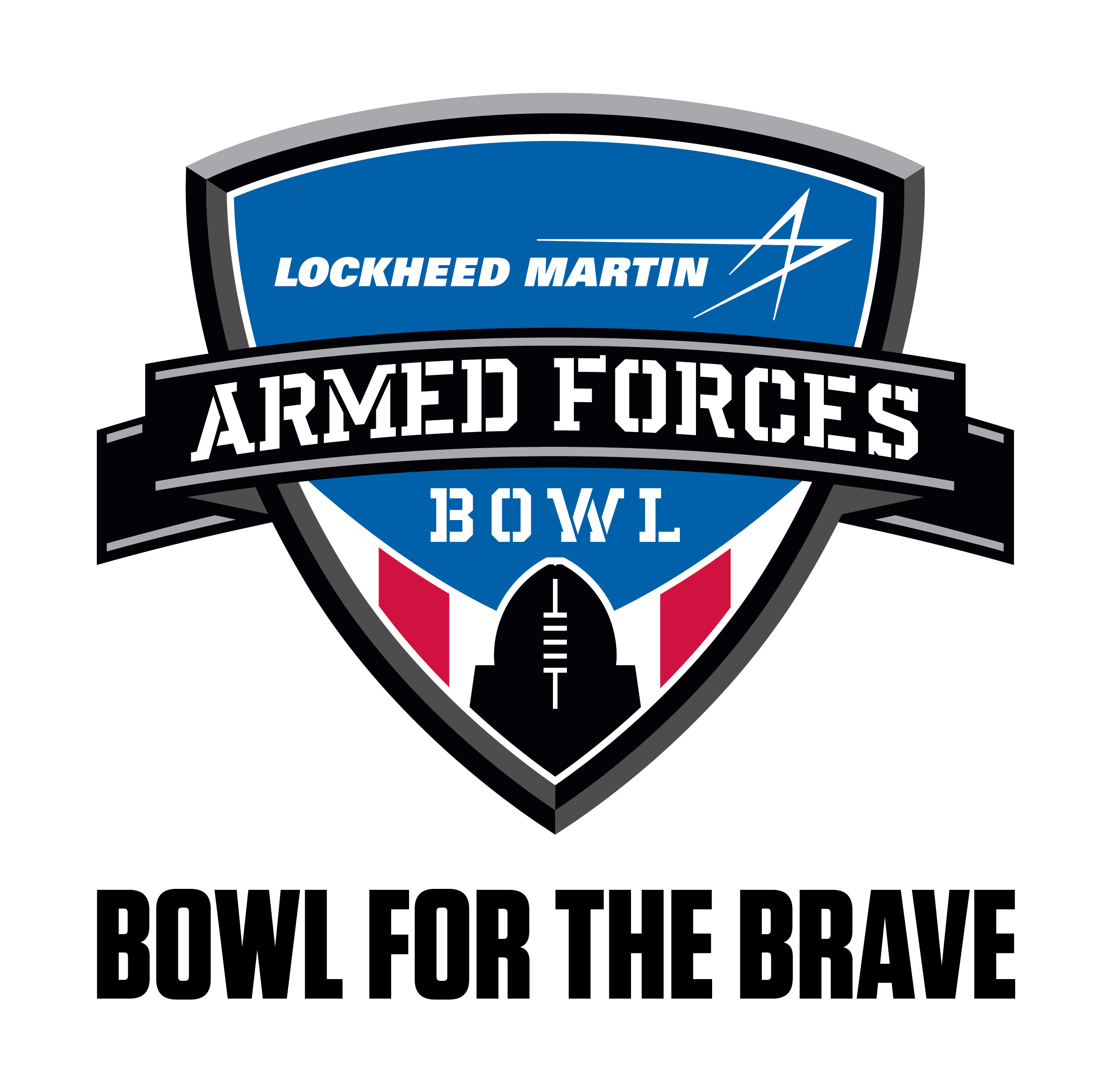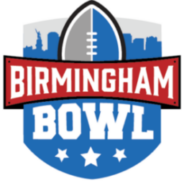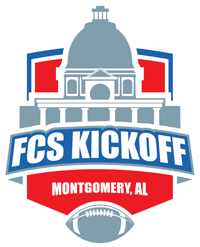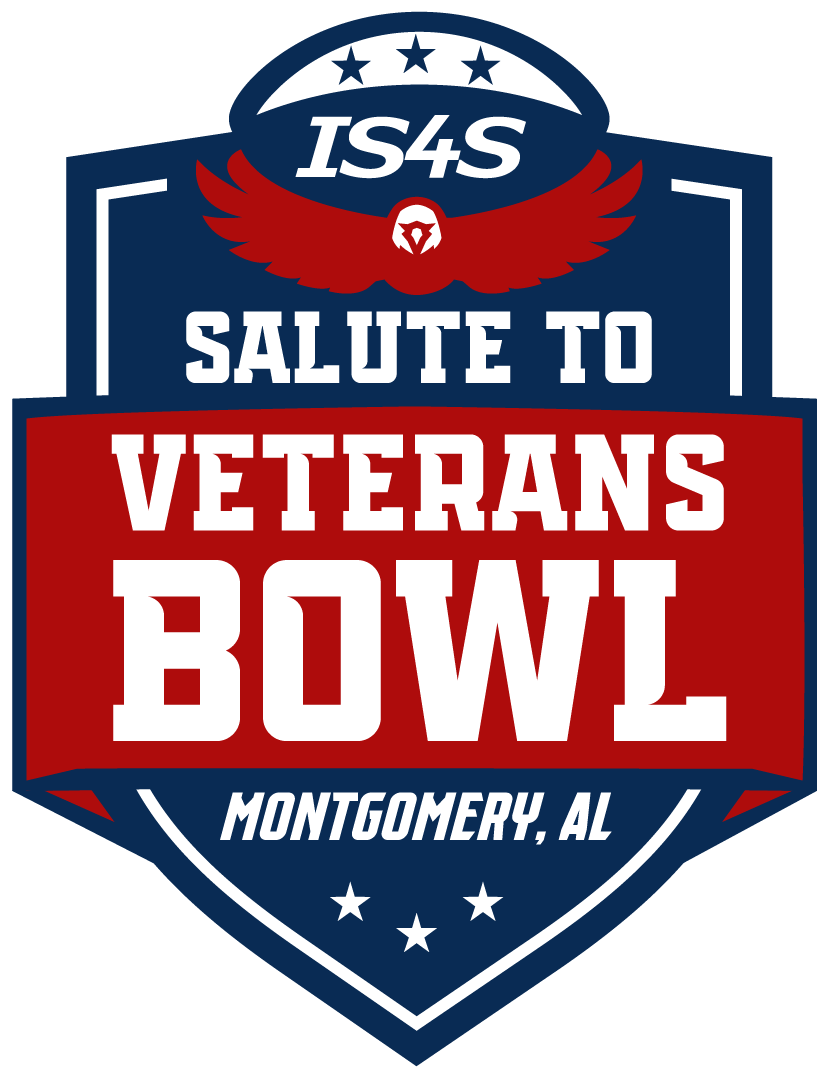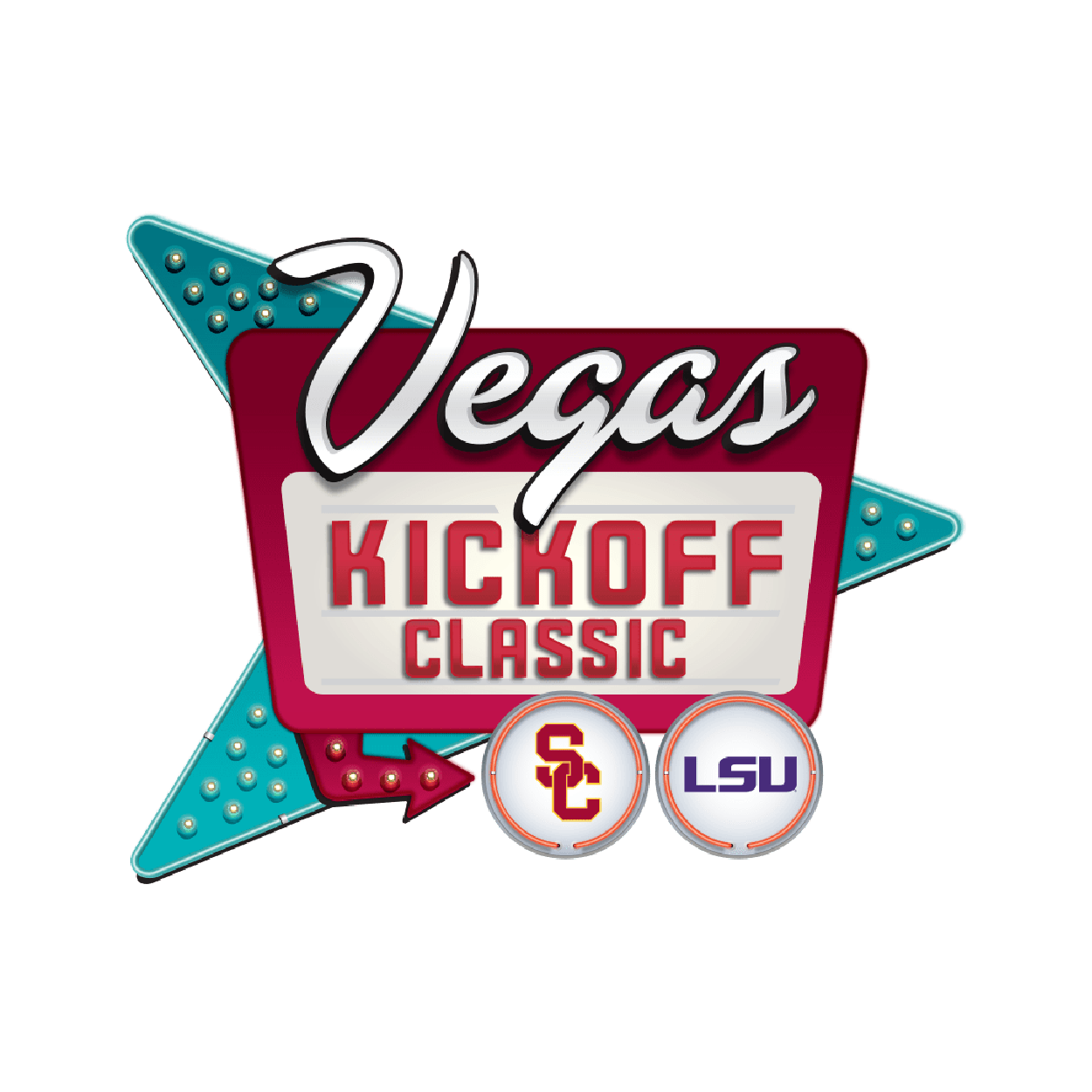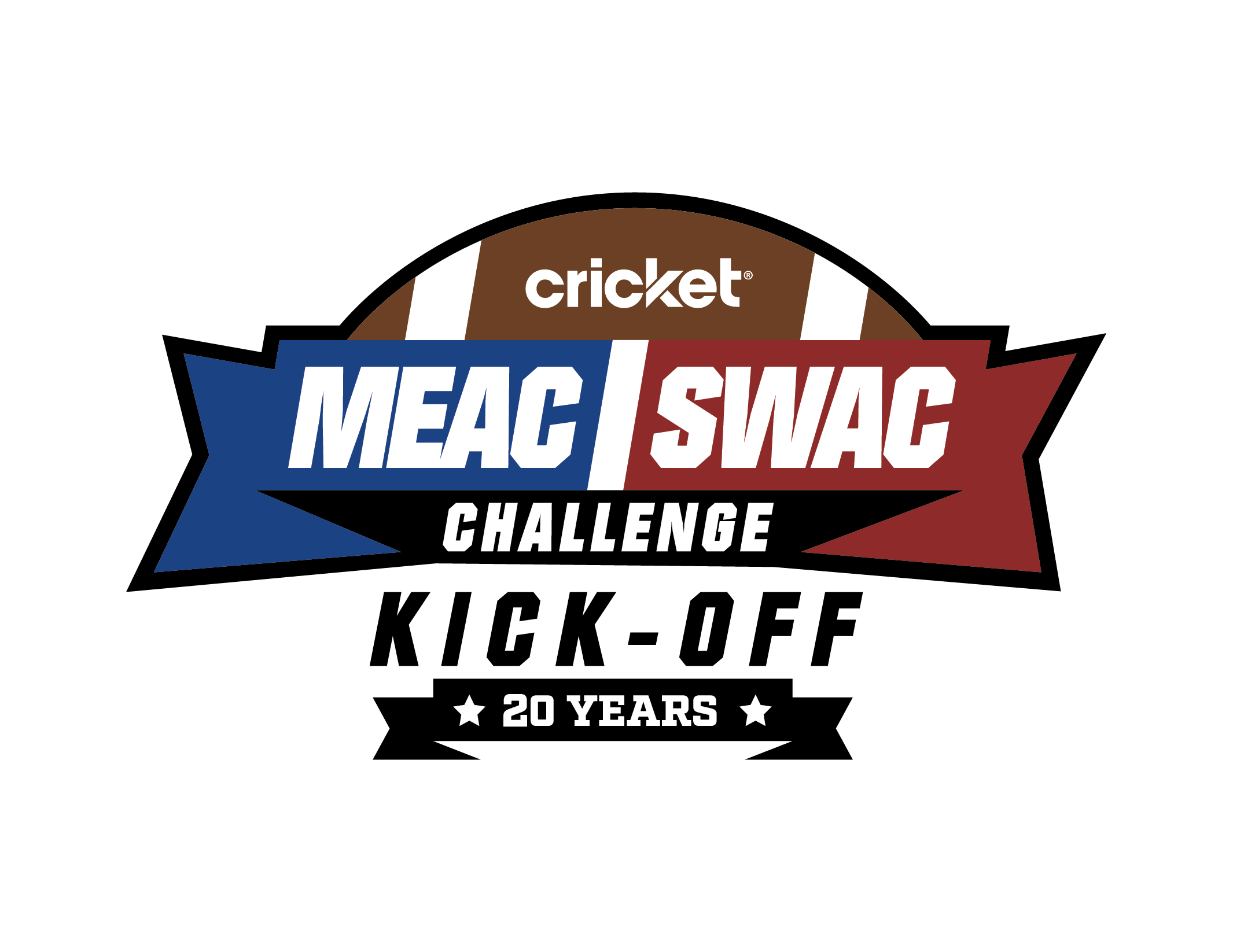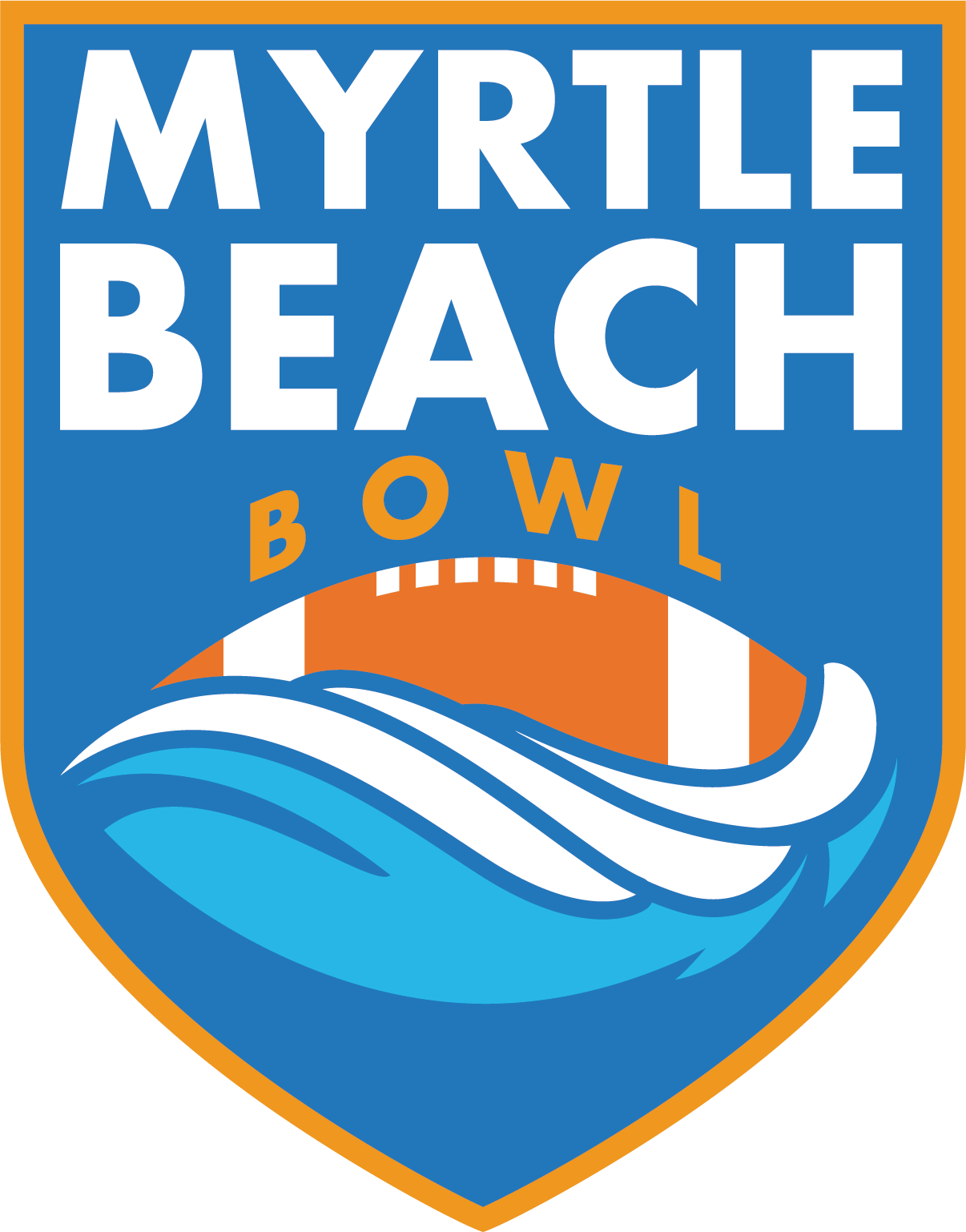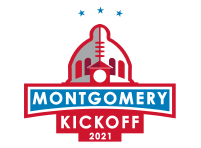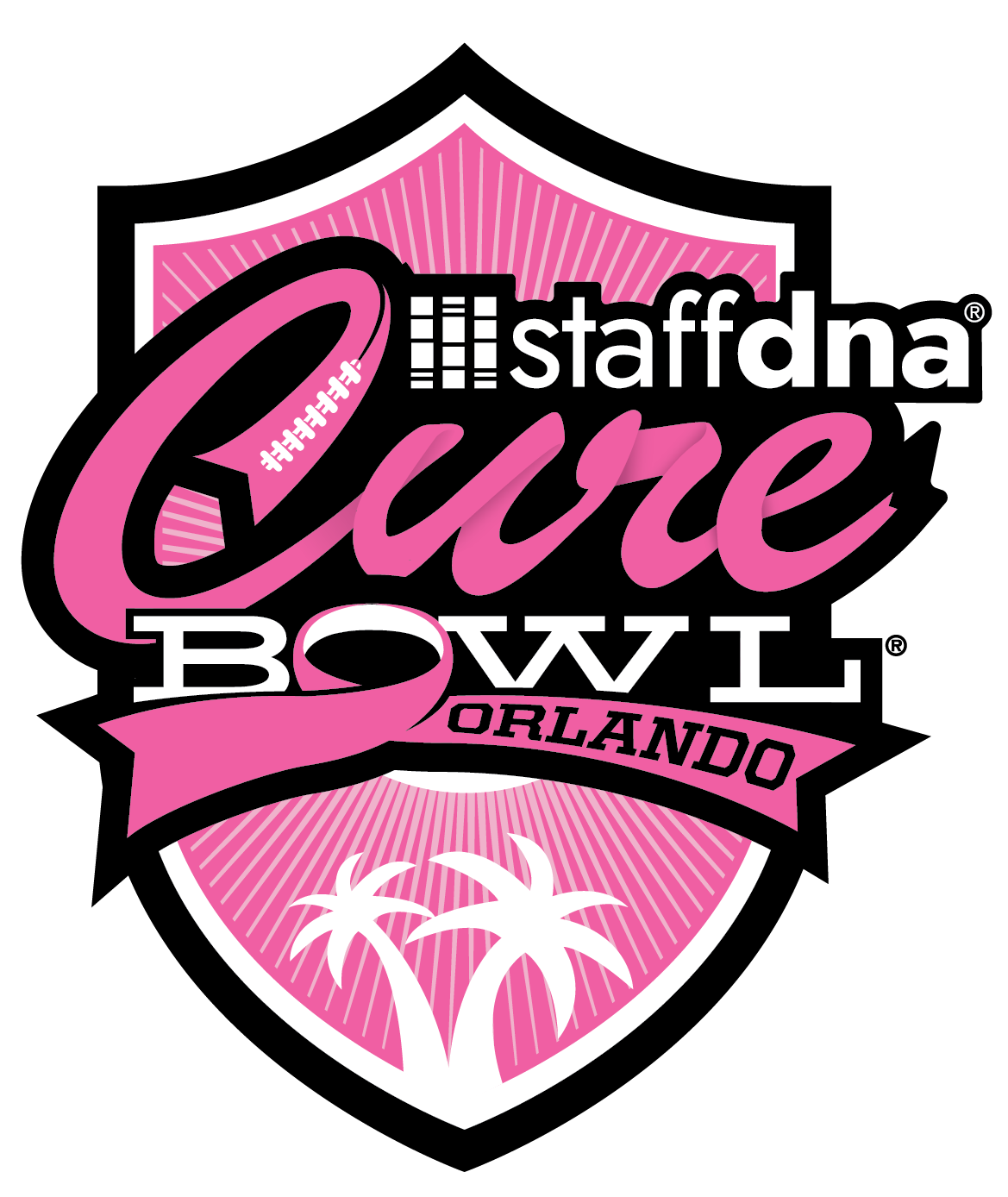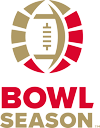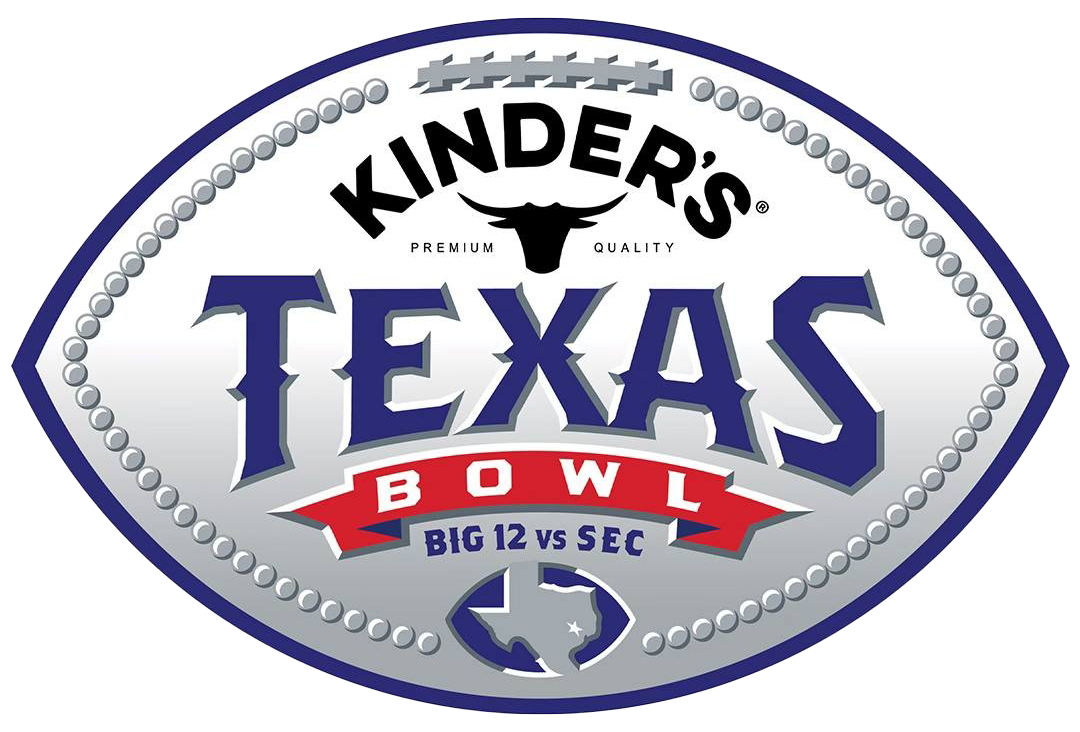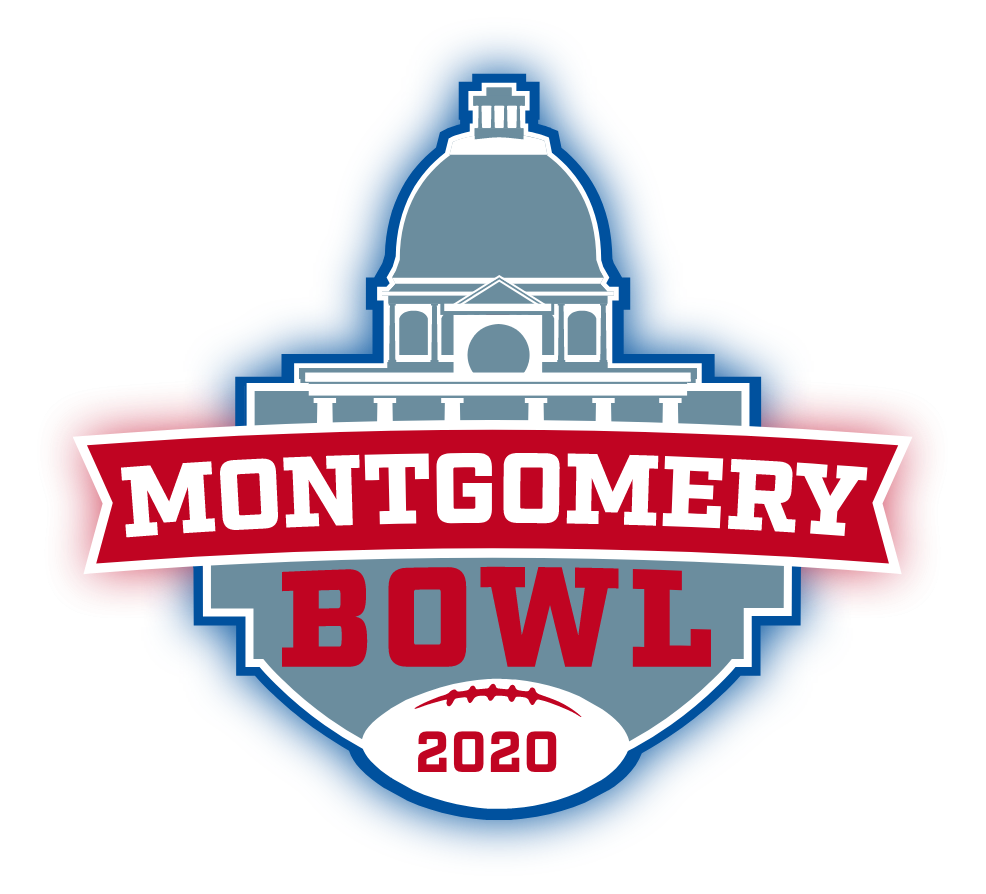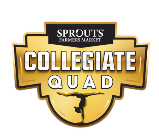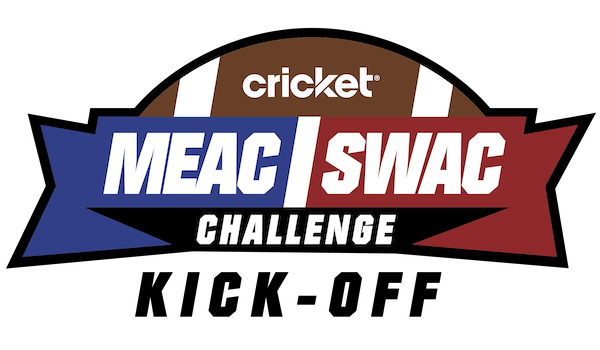
The Air Force Reserve Celebration Bowl trophy will be part of the College Football Hall of Fame’s “Breaking Barriers” exhibit throughout February and beyond into July in celebration of Black History Month. The full story can be read below:
IRVING, Texas (Jan. 31, 2017) – The National Football Foundation (NFF) & College Football Hall of Fame announced today that the Hall in Atlanta will unveil a special exhibit and host a unique roundtable event in celebration of Black History Month. Additionally the Hall will donate $1 from every full-price admission sold during the week of Feb. 20, 2017 to the United Negro College Fund. The honorary chairman for the month-long celebration at the Hall is Atlanta Mayor Kasim Reed.
“College football has a rich history of being in the vanguard of shattering racial barriers,” said NFF President & CEO Steve Hatchell. “Ever since the first black player took the field at a predominately white college in 1889, college football has helped integrate our country and overcome prejudices. We are extremely proud of this history, and it is a powerful testament of why Football Matters well beyond the playing field.”
The College Football Hall of Fame and Chick-fil-A Fan Experience will open the exhibit to the public on Feb. 1 in Atlanta. Called “Breaking Barriers,” the display, located in the Specialty Exhibit delivered by UPS, will chronicle game-changing individuals, stories and the moments that paved the way, including the first southern African-American players to go north, the 1939 UCLA Bruins, the 1951 San Francisco Dons, William Henry Lewis, Jack Trice, Johnny Bright, Paul Robeson, Ernie Davis, Fritz Pollard, and Coach Eddie Robinson. The exhibit will also feature treasured artifacts, including memorabilia from Eddie Robinson, the Celebration Bowl Trophy and a copy of William Henry Lewis’ football instruction book published in 1896.
On Feb. 22, the Hall will host an intimate “Breaking Barriers” roundtable event, featuring several Hall of Famers who played seminal roles during the integration of college football. Don McPherson, one of five African-American College Football Hall of Fame inductees from Syracuse, will emcee the evening, conducting a 90-minute discussion. The panel will include Hall of Famers:
- Thom Gatewood, a 2015 inductee and a split end from 1969-71 at Norte Dame; the first African-American in history to serve as captain of the Fighting Irish football team; named an NFF National Scholar-Athlete in 1971; serves on the advisory board for the “Healthy Children, Healthy Futures” initiative, which fosters fitness and nutrition in inner city communities and volunteers for Minority Athletes Networking Etc.; joined the NFF Board of Directors in 2016.
- Gene Washington, a 2011 inductee and a wide receiver from 1964-66 at Michigan State; one of the key African-American players from the segregated South recruited by Hall of Fame Coach Duffy Daugherty to play in the North for Michigan State, winning two national championships; served for many years as a workforce diversity manager for 3M Corporation.
- John Wooten, a 2012 inductee and an offensive guard from 1956-58 at Colorado; one of the first African-Americans to earn All-America honors playing on the interior line; chairman of the Fritz Pollard Alliance, which works in conjunction with the NFL in minority hiring practices.
The audience for the event will include students from the local Historically Black Colleges and Universities, Hall partners and VIP guests.
“As the birthplace of the civil rights movement and epicenter of college football, Atlanta is the perfect city for this celebration. The many intersections of college football and black history provide us an amazing platform for engaging the community,” said Dennis Adamovich, College Football Hall of Fame and Chick-fil-A Fan Experience CEO. “We are honored to participate in this special opportunity, which we know will have an impact on fans both young and old.”
From its earliest days, the NFF has honored the African-Americans who forged the path for future generations. The NFF inducted the inaugural College Football Hall of Fame Class in 1951, including Duke Slater, the legendary tackle at Iowa from 1918-21 and who was the Hawkeyes’ first African-American All-American. The NFF’s second class included famed Brown running back Fritz Pollard, who played for the Bears from 1915-16 and was the first African-American to play in the Rose Bowl and subsequently the first to coach in the NFL.
African-Americans in the College Football Hall of Fame currently number 204 players and 12 coaches, and many of them used their exceptional skills to help integrate the game. The following list highlights several Hall of Famers along with many other notable African-Americans who helped pave the way.
Alabama
- Wilbur Jackson, running back from 1971-73, first African-American to accept a football scholarship at Alabama
- John Mitchell, offensive lineman from 1971-73, first African-American to play in a game at Alabama
- Dock Rone, Arthur Dunning, Melvin Leverett, Andrew Pernell and Jerome Tucker, the five black walk-on players who participated in the 1967 spring practices
Amherst College (Mass.)
- William H. Lewis, center from 1889-91, joined William Tecumseh Sherman Jackson as the first African-American players ever at a predominantly white college, 2009 College Football Hall of Fame inductee, also played at Harvard where he became the first ever African-American to earn First Team All-America honors, became the first ever African-American assistant coach in the nation at Harvard
- William Tecumseh Sherman Jackson, halfback from 1889-1891, joined Williams H. Lewis as the first African-American players ever at a predominantly white college
Arizona
- Fred Batiste, running back from 1949-52, first African-American to play at Arizona
Arizona State
- Emerson Harvey, defensive end from 1937-38, first African-American to play football at Arizona State
Arkansas
- Darrell Brown, tailback/cornerback from 1965-69, first African-American to play football at Arkansas
Arkansas State
- David Mitchell, running back from 1970-73, first African-American to play at Arkansas State
Auburn
- James Owen, fullback from 1969-72, first African-American to play at Auburn
Baylor
- John Hill Westbrook, running back from 1965-66, first African-American to play in the Southwest Conference
Boise State
- Aurelius Buckner, played from 1944-46, first African-American to play at Boise State (then Boise Junior College)
Boston College
· Lou Montgomery, running back from 1938-41, first African-American student-athlete at Boston College
Brown
- Fritz Pollard, running back from 1915-16, first African-American to play in the Rose Bowl, first black running back to be named a Walter Camp All-American, 1954 College Football Hall of Fame inductee, first African-American to coach in the NFL
Buffalo
· Willie Evans, halfback from 1956-59, helped Buffalo secure its first invitation to play in a bowl game, but the Tangerine Bowl in Orlando, Fla., barred black players. The team unanimously rejected the opportunity to play without Evans and Mike Wilson, a reserve end and the only other black player on the team, making national news. Buffalo would not have another opportunity to play in a bowl game until 2009
BYU
· Bennie Smith, cornerback from 1971-72, first African-American to appear on the BYU roster
California
· Walter Gordon, interior lineman from 1915-18, first African-American from Cal, 1975 College Football Hall of Fame inductee, first African-American to receive a law degree from Cal
Clemson
· Marion Reeves, cornerback from 1971-73, first African-American to play at Clemson
Colorado
- Frank Clarke, wide receiver in 1955-56, first African-American to play football at Colorado, among first African-Americans to play in the Orange Bowl
- John Wooten, offensive guard from 1956-58, one of the first African-Americans to earn All-America honors playing on the interior line, 2012 College Football Hall of Fame inductee, chairman of the Fritz Pollard Alliance, which works in conjunction with the NFL in minority hiring practices
Colorado State
· John W. Mosley, fullback from 1939-42, first African-American to play in the Mountain States Conference
Cornell
- Jerome “Brud” Holland, first African-American to play at Cornell, 1965 College Football Hall of Fame inductee, U.S. ambassador to Sweden 1970-72, first African-American director of the New York Stock Exchange, 1971 NFF Distinguished American Award, 1985 Presidential Medal of Freedom
Drake
· Johnny Bright, halfback from 1949-51, endured a notorious racially motivated attack during a game in 1951 while contending for the Heisman Trophy, 1984 College Football Hall of Fame inductee
Duke
· William Turner, played in 1966, along with Allen Parks first African-American players at Duke
· Allen Parks, played in 1966, along with William Turner first African-Americans players at Duke
East Carolina
· Paul Scott, played in 1966, first African American student to receive a football scholarship to East Carolina
Florida
· Leonard George, defensive back from 1968-71, first African-American scholarship player at Florida
· Willie Jackson Sr., wide receiver from 1968-71, first African-American to play in a game at Florida
Florida State
· Ernest Cook, fullback in 1967, first African-American to sign a football scholarship at Florida State but left to play at Minnesota
· Calvin Patterson, played from 1968-69, second African-American to sign a football scholarship at Florida State and first African-American to play for Florida State on the freshman team
· James “JT” Thomas, receiver/defensive back from 1970-72, first African-American play in a varsity game for Florida State (Sept. 12, 1970 against Louisville), one of four African-Americans to sign in 1969 to play on the freshman team and who would play together through the end of the 1972 season
· Bobby Anderson, interior defensive lineman from 1970-72, one of four African-Americans to sign in 1969 to play on the freshman team and who would play together through the end of the 1972 season
· Eddie McMillan, receiver/defensive back from 1970-72, one of four African-Americans to sign in 1969 to play on the freshman team and who would play together through the end of the 1972 season
· Charlie Hunt, defensive end/quarterback from 1970-72, one of four African-Americans to sign in 1969 to play on the freshman team and who would play together through the end of the 1972 season
· Richard Appleby, wide receiver from 1971-74, one of first African-Americans to play at Georgia
· Horace King, running back from 1971-74, one of first African-Americans to play at Georgia
· Chuck Kinnebrew, defensive lineman from 1971-74, one of first African-Americans to play at Georgia
· Larry West, defensive back from 1971-74, one of first African-Americans to play at Georgia
Georgia Tech
Edward ‘Eddie’ McAshan, quarterback from 1970-72, first African-American football player to start at Georgia Tech, first African-American scholarship player at Georgia Tech, first black quarterback to start for a major Southeastern university
Karl “PeeWee” Barnes, defensive back/returner in 1972, first African-American walk-on player at Georgia Tech
Greg Horne, tailback from 1971-73, second African-American scholarship player at Georgia Tech
Joe Harris, linebacker from 1972-74, first African-America captain at Georgia Tech, third African-American scholarship player at Georgia Tech
Grambling
· Paul “Tank” Younger, fullback from 1945-48, first player from a historically black college ever drafted in the NFL, 2000 College Football Hall of Fame inductee
· Buck Buchanan, tackle from 1959-62, first player from a historically black college to be the No. 1 overall pick in the NFL Draft, 1996 College Football Hall of Fame inductee
· Doug Williams, quarterback 1974-1977, first African-American quarterback to play in a Super Bowl, 2000 College Football Hall of Fame inductee
Harvard
· William H. Lewis, center from 1892-93, first ever African-American to earn First Team All-America honors, 2009 College Football Hall of Fame inductee, also played at Amherst as one of the first two African-American football players ever at predominately white college
· Chester Pierce, tackle in 1947, first African-American to play in a game south of the Mason-Dixon Line
Houston
· Warren McVea, running back from 1965-67, first African-American to play at Houston
Illinois
· Claude Young, halfback in 1944; 1946, first African-American to play at Illinois, 1968 College Football Hall of Fame inductee, first African-American to work as an executive with a major sports league as a member of the NFL Commissioner’s staff
· J.C. Caroline, halfback from 1953-54, first African-American elected captain at Illinois, 1980 College Football Hall of Fame inductee
Indiana
· Preston Eagleson, running back from 1893-95, first African-American to play football at Indiana, first African-American to earn an advanced degree from IU
· George Taliaferro, halfback in 1945, 1947-1948, first African-American drafted by an NFL team, 1981 College Football Hall of Fame inductee
Iowa
· Frank Kinney Holbrook, played from 1895-96, first African-American to play at Iowa
· Archie Alexander, tackle from 1910-12, second African-American player at Iowa
· Duke Slater, tackle from 1918-21, first African-American All-American at Iowa, first African-American as a member of the first College Football Hall of Fame Class in 1951, one of the first African-Americans to play professional football in the modern era
· Ozzie Simmons, played from 1934-35, endured racial targeting during the 1934 Minnesota game that led to the Minnesota and Iowa governors wagering a prize hog the following year to defuse the situation and eventually leading to the creation of the Floyd of Rosedale Trophy
Iowa State
· Jack Trice, tackle from 1922-23, first African-American student-athlete in the Big Six, Iowa State’s stadium is named in his honor, died to due injuries suffered during the 1923 Minnesota game with speculation that he was targeted for racial reasons and creating a hiatus between the two schools playing each other until 1989
Kansas State
· Veryl Switzer, halfback from 1950-53, first African-American scholarship player at Kansas State
Kentucky
· Nate Northington, running back and defensive back from 1966-67, first African-American to play football in the SEC when he played for the Wildcats against Ole Miss on Sept. 30, 1967
· Greg Page, defensive end in 1966-67, one of the first two African-Americans to sign to play football at Kentucky but in his second year died after a paralyzing neck injury in practice
· Wilbur Hackett, linebacker from 1968-70, first African-American captain in the SEC in any sport (1969), continued legacy of Northington and Page, joined Hogg as the first African-American football players to complete their careers at UK
· Houston Hogg, running back from 1969-70, continued legacy of Northington and Page, joined Hackett as the first African-American football players to complete their careers at UK
· Special Note: In honor of Northington, Page, Hackett and Hogg, Kentucky commissioned a statue made of the four pioneers, which is displayed at UK’s football training center next to Commonwealth Stadium
LSU
· Lora Hinton Jr., running back from 1971-75, first African-American to earn an athletic scholarship at LSU
· Mike Williams, cornerback from 1972-74, second African-American player at LSU
Louisiana Tech
· Fred Dean, defensive end from 1971-74, among first African-Americans to play at Louisiana Tech, 2009 College Football Hall of Fame inductee
Louisville
· Lawrence Simmons, played in 1952, first African-American to play at Louisville
Maryland
· Darryl Hill, wide receiver from 1962-63, first African-American on a team in a Southern conference, first African-American player in the ACC
Miami (Fla.)
· Ray Bellamy, wide receiver from 1967-70, first African-American on a football scholarship at Miami (Fla.)
Michigan
· George Jewett, fullback/halfback from 1890-93, first African-American to play in the Big Ten, later transferred to Northwestern and become the first African-American to play for the Wildcats as well
· Willis Ward, from 1932-34, second African-American and first in 40 years to play at Michigan, controversially excluded from playing in the 1934 Georgia Tech game for racial reasons
Michigan State
· Gideon Edward Smith, tackle from 1913-15, first African-American student-athlete at Michigan State (then known as Michigan Agriculture College)
· James McCrary, halfback from 1933-34, notoriously left behind for the Texas A&M game in 1934
· Albert Baker, end in 1934, notoriously left behind for the Texas A&M game in 1934
· Horace Smith, halfback and end from 1946-49, played during the reversal of the policy of “segregated integration” when Northern schools would not play African-American player against Southern schools as one of the first to play in the South
· Willie Thrower, quarterback from 1949-52, first African-American quarterback to play in the Big Ten in 1950, first African-American to play quarterback in the NFL
· Clinton Jones, halfback from 1964-66, a member of the first foursome of African-American players inducted into the College Football Hall of Fame from the same freshman class and who played on Hall of Fame Coach Duffy Dougherty’s two national championship teams in the 1960s with multiple African American players recruited from the South
· Bubba Smith, defensive end, from 1964-66, one of the key African American players from the segregated South recruited by Hall of Fame Coach Duffy Dougherty to play in the North for Michigan State, winning two national championships and a member of the first foursome of African-American players inducted into the College Football Hall of Fame from the same freshman class
· Gene Washington, wide receiver from 1964-66, one of the key African American players from the segregated South recruited by Hall of Fame Coach Duffy Dougherty to play in the North for Michigan State, winning two national championships and a member of the first foursome of African-American players inducted into the College Football Hall of Fame from the same freshman class
· George Webster, linebacker from 1964-66, one of the key African American players from the segregated South recruited by Hall of Fame Coach Duffy Dougherty to play in the North for Michigan State, winning two national championships and a member of the first foursome of African-American players inducted into the College Football Hall of Fame from the same freshman class
· Herb Adderley, running back from 1958-60, first African American player to be drafted by the Green Bay Packers, inducted into the Pro Football Hall of Fame in 1980
Minnesota
· Bobby Marshall, played 1904-06, first African-American player at Minnesota and the second African-American in history to earn All-American honors twice, 1971 College Football Hall of Fame inductee
· Ellsworth Harpole, played 1931-33, the second African-American player at Minnesota
· Dwight Reed, a blocking end from 1935-37, received national attention when he was forced to watch the Gopher’s 1935 homecoming game from the press box because Tulane refused to play if he was on the field, endured a similar experience in 1936 against Texas, played on two Big Ten and National Championship teams
· Horace Bell, played from 1936-38, joined Reed in being held out of the 1936 Texas game
· Sandy Stephens, 1959-61, first African-American quarterback to earn First Team All-America honors, 2011 College Football Hall of Fame inductee
Mississippi
· Robert Jerry “Ben” Williams, defensive lineman 1972-75, first African-American to play at Mississippi, first African-American from Ole Miss to be inducted into the Mississippi Sports Hall of Fame (1997)
Missouri
· Norris Stevenson, running back from 1958-60, joined Mel West as the first African-Americans to play at Missouri
· Mel West, running back from 1958-60, joined Norris Stevenson as the first African-Americans to play at Missouri
Navy
· Calvin Huey, wide receiver from 1963-64, first African-American to play at any of the service academies
Nebraska
· George Flippin, running back from 1891-94, first African-American to play at Nebraska
Nevada
· Arthur James, played in 1921, first African-American to play at Nevada
· Marion Motley, fullback from 1941-43, one of the first African-Americans to play professional football in the modern era
North Carolina
· Ricky Lanier, quarterback from 1967-69, first African-American scholarship player at North Carolina
NC State
· Marcus Martin, defensive back from 1967-69, first African-American to play at NC State
North Texas
· Abner Haynes, running back from 1956-59, first African-American player at a major Texas college, two-time All-MVC
Notre Dame
· Aaron W. Dyson, an ex-GI from Indianola, Miss., becomes the first African-American to try out for the Notre Dame football team in 1949
· Wayne Edmonds, lineman from 1953-55, first African-American to play at Notre Dame and earn a monogram on the football team, member of the undefeated national championship team, played in the 1953 game moved to South Bend because Georgia Tech refused to play a team at home in Atlanta with black members
· Thom Gatewood, a 2015 inductee and a split end from 1969-71 at Norte Dame; the first African-American in history to serve as captain of the Fighting Irish football team; named an NFF National Scholar-Athlete in 1971; serves on the advisory board for the “Healthy Children, Healthy Futures” initiative, which fosters fitness and nutrition in inner city communities and volunteers for Minority Athletes Networking Etc.; joined the NFF Board of Directors in 2016.
· Richard Washington, halfback in 1953, played with Wayne Edmonds on the undefeated national championship team, played in the 1953 game moved to South Bend because Georgia Tech refused to play a team at home in Atlanta with black members
· Aubrey Lewis, halfback from 1955-57, first African-American student-athlete to serve as a captain for any Irish varsity sport
Northwestern
· George Jewett, fullback/halfback from 1893-94, first African-American to play at Northwestern, holds the distinction as the only person to be the first African-American to play at two Big Ten schools, having previously been the first at Michigan as well
· Alton Washington, played from 1898-1901, second African-American football player at Northwestern
· Joe Lattimore, played in 1900, joining Alton Washington and giving Northwestern the first pair of black teammates in the conference
Ohio State
- William Bell, lineman from 1929-1931, sidelined because of racial tensions against Navy as a junior and against Vanderbilt as a senior
- Arthur Carr, player in 1904
· Bill Willis, tackle from 1942-44, first African-American on a national championship team, one of the first African-Americans to play professional football in the modern era, 1971 College Football Hall of Fame inductee
· Jim Parker, guard from 1954-1956, first Ohio State player to win the Outland Trophy, 1974 College Football Hall of Fame inductee
· Fred Patterson, player from 1891-93, first African-American at Ohio State and second to play for a Big Ten school
Oklahoma
· Prentice Gautt, running back from 1956 to 1959, first black football player at Oklahoma, 2005 recipient of the NFF Outstanding Contribution to Amateur Football Award
Oklahoma State
· Chester Pittman, halfback from 1957-60, first African-American to letter at Oklahoma State
Oregon
· Robert Robinson, quarterback from 1926-29, first African-American starting quarterback in college football, first black student-athlete at Oregon
Oregon State
· Dave Mann, punter/running back from 1951-54, first African-American to play at Oregon State
Penn State
· Wallace “Wally” Triplett III, halfback from 1945-48, first African-American to start for Penn State, first black student-athlete to earn a varsity letter, first Nittany Lion to be selected in the NFL Draft, first African-American to play in the Cotton Bowl along with teammate Dennie Hoggard
· Dennie Hoggard, played 1946-48, first African-American to play in the Cotton Bowl in 1948 along with teammate Wally Tripplett,
Pittsburgh
· Allen Carter, played in 1945, first African-American to play at Pittsburgh
· Bobby Grier, fullback from 1952-55, first African-American to play in the Sugar Bowl
Purdue
· Lamar Lundy, defensive end from 1953-56, first African-American scholarship player at Purdue
Rice
· Stahle Vincent, quarterback from 1969-71, one of the first three African-American players at Rice, first African-American quarterback in Southwest Conference
· Rodrigo Barnes, linebacker from 1969-71, one of the first three African-American players at Rice, first African-American to be named to an All-SWC Defensive Team
· Mike Tyler, defensive back from 1969-71, one of the first three African-American players at Rice
Rutgers
· Paul Robeson, End from 1915-18, first African-American to play football at Rutgers, 1995 College Football Hall of Fame inductee, named one of the ten most important black men in American history by Ebony Magazine
SMU
· Jerry LeVias, wide receiver from 1966-68, first African-American player on scholarship in Southwest Conference history, 2003 College Football Hall of Fame inductee
San Francisco
· Ollie Matson, member of the 1951 undefeated Dons that did not play in a bowl game because of the team’s refusal to play without their African-American players, 1976 College Football Hall of Fame inductee
·
South Carolina
· Jackie Brown, wide receiver from 1970-72, first African-American to start at South Carolina and earn a varsity letter
Southern California
· Brice Taylor, guard from 1924-26, first African-American to play at USC, first All-American at USC despite having only one hand
· Sam Cunningham, fullback from 1970-72, member of first all-black backfield in Division I history, 2010 College Football Hall of Fame inductee, played in historic 1970 game between Alabama and USC
Southern Mississippi
· Willie Heidelberg, running back from 1970-71, first African-American to play at Southern Miss
Springfield College (Mass.)
· Roscoe C. Brown, Jr., offensive and defensive end from 1939-42, one of the Tuskegee Airmen and the first pilot to shoot down a newer, faster German Messerschmitt Me-262 jet during World War II, 2012 NFF Gold Medal recipient
Syracuse
· Wilmeth Sidat-Singh, played halfback in Syracuse’s single-wing offense, a position similar to today’s quarterback, from 1937-39; prohibited from playing in the 1937 game at Maryland, which the Orange lost 13-0, but played the following year at home in a 53-0 victory against the Terrapins; became a Tuskegee Airman, dying during a 1943 training mission
· Jim Brown, running back from 1954-56, one of the first African-Americans to utilize his on field accomplishments as a platform for creating off-field opportunities as an actor and social activist, 1995 College Football Hall of Fame inductee
- Ernie Davis, running back from 1959-61, first African-American Heisman Trophy recipient, 1979 College Football Hall of Fame inductee
Tennessee
· Lester McClain, wide receiver from 1968-70, first African-American to play at Tennessee
· Condredge Holloway, quarterback from 1972-74, first African-American to start at quarterback in SEC
Texas
· Julius Whitter, offensive lineman from 1970-71, the first African-American football letterman at Texas
Texas A&M
· Hugh McElory, wide receiver from 1969-71, first African-American to play at Texas A&M
TCU
· Linzy Cole, wide receiver from 1968-71, first African-American to play at TCU
Texas Tech
· Danny Hardaway, running back from 1969-70 first African-American to play at Texas Tech
Troy
· Cliff Dunham, played in 1971, first African-American to play at Troy
Tulsa
· Willie Townes, defensive lineman from 1963-65, first African-American to play at Tulsa
UCLA
· Jackie Robinson, halfback from 1939-40, first African American Major League Baseball player, member of highly-integrated UCLA team, 1997 NFF Gold Medal recipient
· Woody Strode, end in 1939, member of highly-integrated UCLA team
· Kenny Washington, running back from 1937-40, member of highly-integrated UCLA team, 1956 College Football Hall of Fame inductee
Vanderbilt
· Taylor Stokes, kicker from 1969-72, first African-American to play at Vanderbilt
Virginia Tech
· John Dobbins, fullback from 1971-73, first African-American to play at Virginia Tech
West Virginia
· Richard Leftridge, running back from 1963-65, first African-American to play at West Virginia
Wisconsin
· Leo Vinton Butts, guard in 1918, first African-American to play at Wisconsin
· Ed Withers, defensive halfback from 1949-1951, first African-American at Wisconsin to earn First Team All-American honors
Yale
· Levi Jackson, running back from 1946-49, first African-American captain at Yale
Coaches
· Sylvester Croom (Mississippi State), coached the Bulldogs from 2004-08, first African-American head coach in Southeastern Conference history
· Dennis Green (Northwestern, Stanford), first African-American head coach in the Football Bowl Subdivision (formerly known as Division I-A) at Northwestern from 1981-85
· Rudy Hubbard (Florida A&M), first African-American head coach to win the NCAA Division I Football Championship Subdivision (formerly Division I-AA) Championship, winning the first edition of the game ever played in 1978
· Willie Jeffries (South Carolina State, Wichita State, Howard), coached from 1973-2001, first African-American head coach in Division I history (1979, Wichita State), 2010 College Football Hall of Fame inductee
· Eddie Robinson (Grambling State), coached the Tigers from 1941-97, first college football coach to break the 400-win barrier, namesake of Football Writers Association of America’s coach of the year trophy and Grambling State’s stadium, 1997 College Football Hall of Fame inductee, 1992 NFF Outstanding Contribution to Amateur Football Award recipient, sent more than 200 players to the NFL – including the league’s first African-American player from a historically black college – Tank Younger (a 2000 College Football Hall of Fame inductee)
· Tyrone Willingham, first African-American head coach to take a team to the Rose Bowl in 2000 while with Stanford, first African-American head coach in any sport at Notre Dame
· Sidney Lane, assistant coach at Utah State from 1968-70, first full-time African American coach hired in major college football
· Bill Hayes, assistant coach at Wake Forest from 1973-75, first African-American coach in the Atlantic Coast Conference
Administrators
· Gene Smith, Notre Dame Defensive End from 1973-76, first African-American NACDA President, 2008 NFF John L. Toner Award recipient (Eastern Michigan, Iowa State, Arizona State, Ohio State)
· Ozzie Newsome, Alabama WR from 1974-77, first African-American NFL General Manager, 1994 College Football Hall of Fame Inductee
About The National Football Foundation & College Hall of Fame
Founded in 1947 with early leadership from General Douglas MacArthur, legendary Army coach Earl “Red” Blaik and immortal journalist Grantland Rice, The National Football Foundation & College Hall of Fame is a non-profit educational organization that runs programs designed to use the power of amateur football in developing scholarship, citizenship and athletic achievement in young people. With 120 chapters and 12,000 members nationwide, NFF programs include FootballMatters.org, the College Football Hall of Fame in Atlanta, The William V. Campbell Trophy presented by Fidelity Investments, annual scholarships of more than $1.3 million and a series of initiatives to honor the legends of the past and inspire the leaders of the future. NFF corporate partners include Delta Air Lines, Fidelity Investments, Herff Jones, Hofmann Brands, New York Athletic Club, Pasadena Tournament of Roses, PrimeSport, the Sports Business Journal, Under Armour & VICIS. Learn more at footballfoundation.org.




